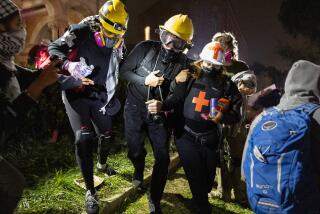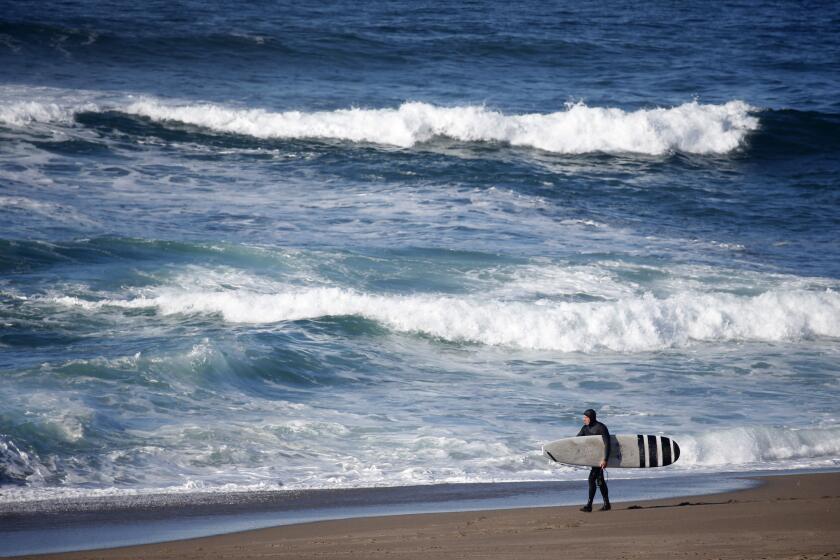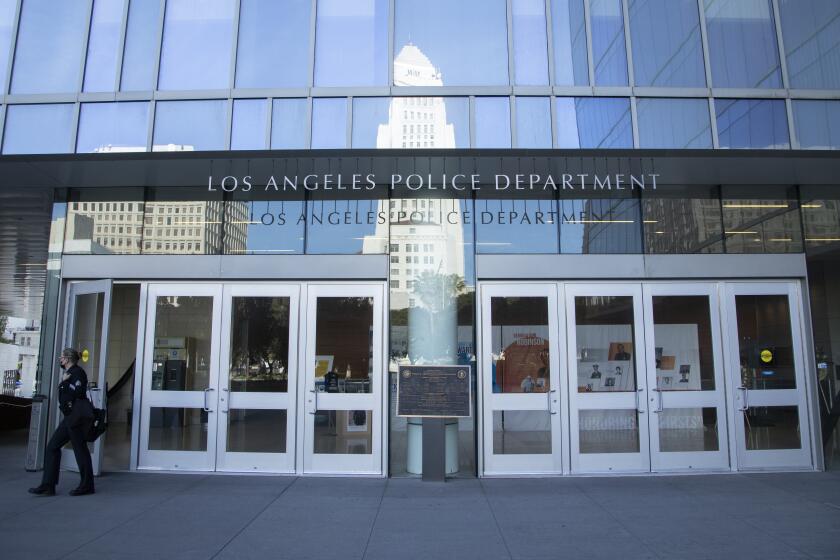Southland Money-Laundering Probe of BCCI Widens
Federal investigators said Thursday they suspect a network of white-collar criminals may have laundered money from a range of Southern California investment scams through Bank of Credit and Commerce International.
Special agents from the Internal Revenue Service and U.S. Postal Inspection Service claim the evidence gathered in a $16-million Orange County telemarketing fraud indicates proceeds from a number of other scam operations may have found their way into BCCI accounts.
These suspicions came about after investigators learned that $3 million of investor funds from First American Currency, a fraudulent Laguna Hills telemarketing operation, were funneled to the Panamanian subsidiary of BCCI.
First American Currency officials were indicted in early February on charges of running an illegal telemarketing operation that sold futures contracts for precious metals.
BCCI is widely believed to be involved in the biggest banking scandal in history. Its assets were seized earlier this month in seven nations, including the United States.
In a related development, the Associated Press reported that the U.S. Central Intelligence Agency is reviewing any dealings it may have had with BCCI. Law enforcement and congressional sources told the news service that the CIA had accounts in the bank during the 1980s and used them for secret aid to rebels in Afghanistan, Nicaragua and other countries.
But CIA Director William Webster said the review of past contacts with BCCI was “not based on any evidence of wrongdoing,” according to spokesman Mark Mansfield. “We are looking at the records so that a comprehensive report can be shared with our congressional oversight committees,” Mansfield said.
On Thursday, federal officials said they suspect a Mission Viejo accountant under indictment in the First American Currency case and a Panamanian citizen under indictment in a separate case--now both fugitives from federal authorities--may have arranged for a number of scam operators to secret money out of this country and into BCCI in Panama.
John Cogswell, the Panamanian citizen, is wanted by federal authorities in connection with a $28-million tax shelter fraud in North Hollywood in the late 1970s. He was indicted in 1986 but has eluded the grasp of U.S. agents.
After seizing First American Currency’s books and records, Commodity Futures Trading Commission investigators discovered a telegram saying Cogswell was arranging the $3-million transfer of First American Currency funds from an Imperial Bank branch in Costa Mesa to BCCI Panama.
Federal investigators now say they suspect Cogswell--because of his role in the First American Currency case--helped white collar criminals in the United States stash money in Panama, sometimes at BCCI.
“I suspect that Cogswell and BCCI have been used repeatedly by those in the boiler room industry here,” said Jim Harbin, a chief postal fraud inspector in Long Beach.
Harbin said he based his suspicions in part on Cogswell’s business relationship with William Carl of Mission Viejo.
“I know Carl has been a consultant for many different boiler rooms in the area, and I know he did it for First American Currency or (at least) we have enough evidence to indict him for having laundered money for First American Currency,” Harbin said. “Plus, I’ve talked to other boiler room (operators) who have dealt with Carl and he suggested to them they move money offshore.”
Besides Cogswell, federal investigators believe Carl--who is known to have provided accounting services for First American Currency and several other boiler-room operations--helped channel funds from some of those boiler rooms to Panamanian banks, including BCCI.
Harbin said Thursday that “I can’t get into the details of other investigations that are not public but I have interviewed business associates of his (Carl’s) who have discussed other offshore transactions suggested by him.”
Asked if those transactions were believed to be illegal, Harbin said “yes.”
More to Read
Start your day right
Sign up for Essential California for news, features and recommendations from the L.A. Times and beyond in your inbox six days a week.
You may occasionally receive promotional content from the Los Angeles Times.






